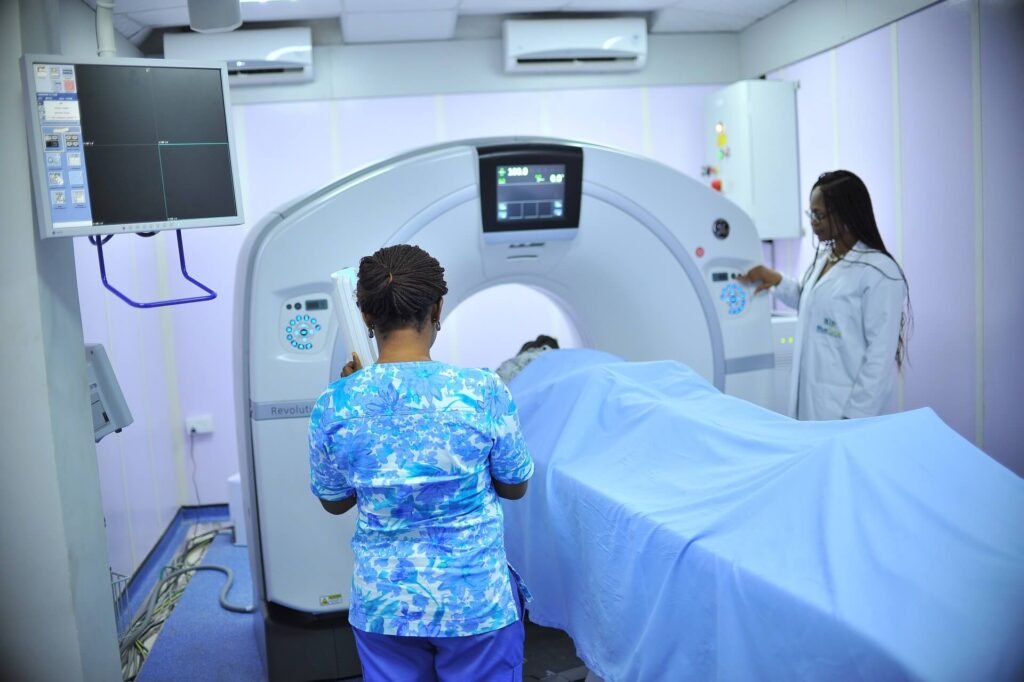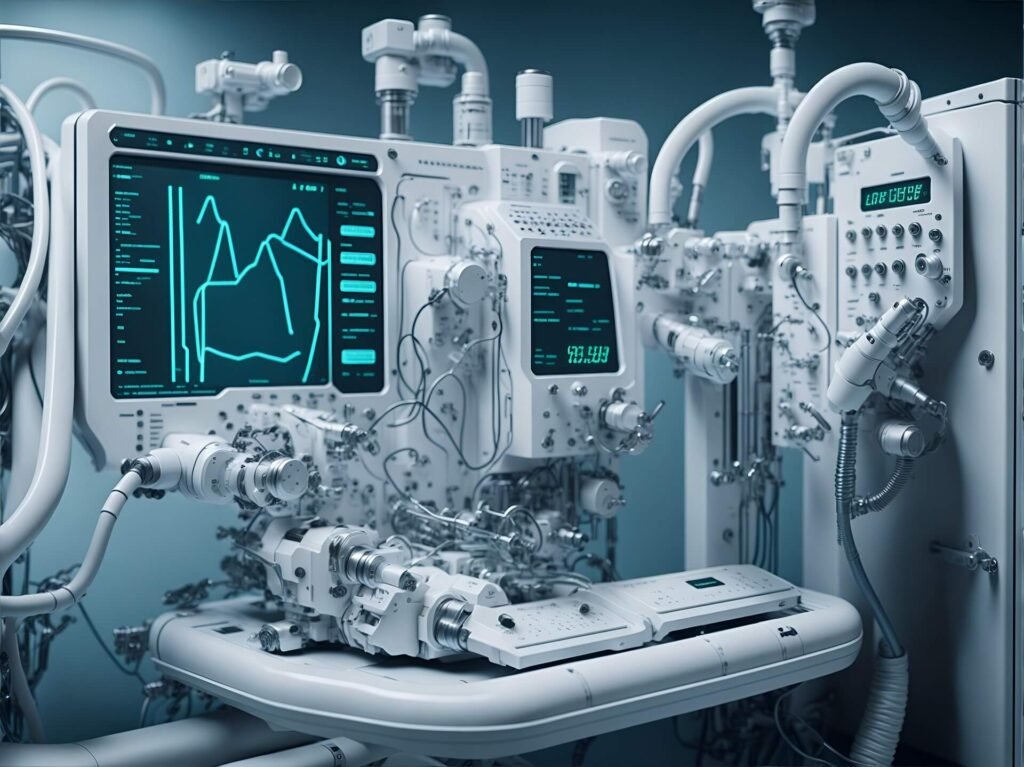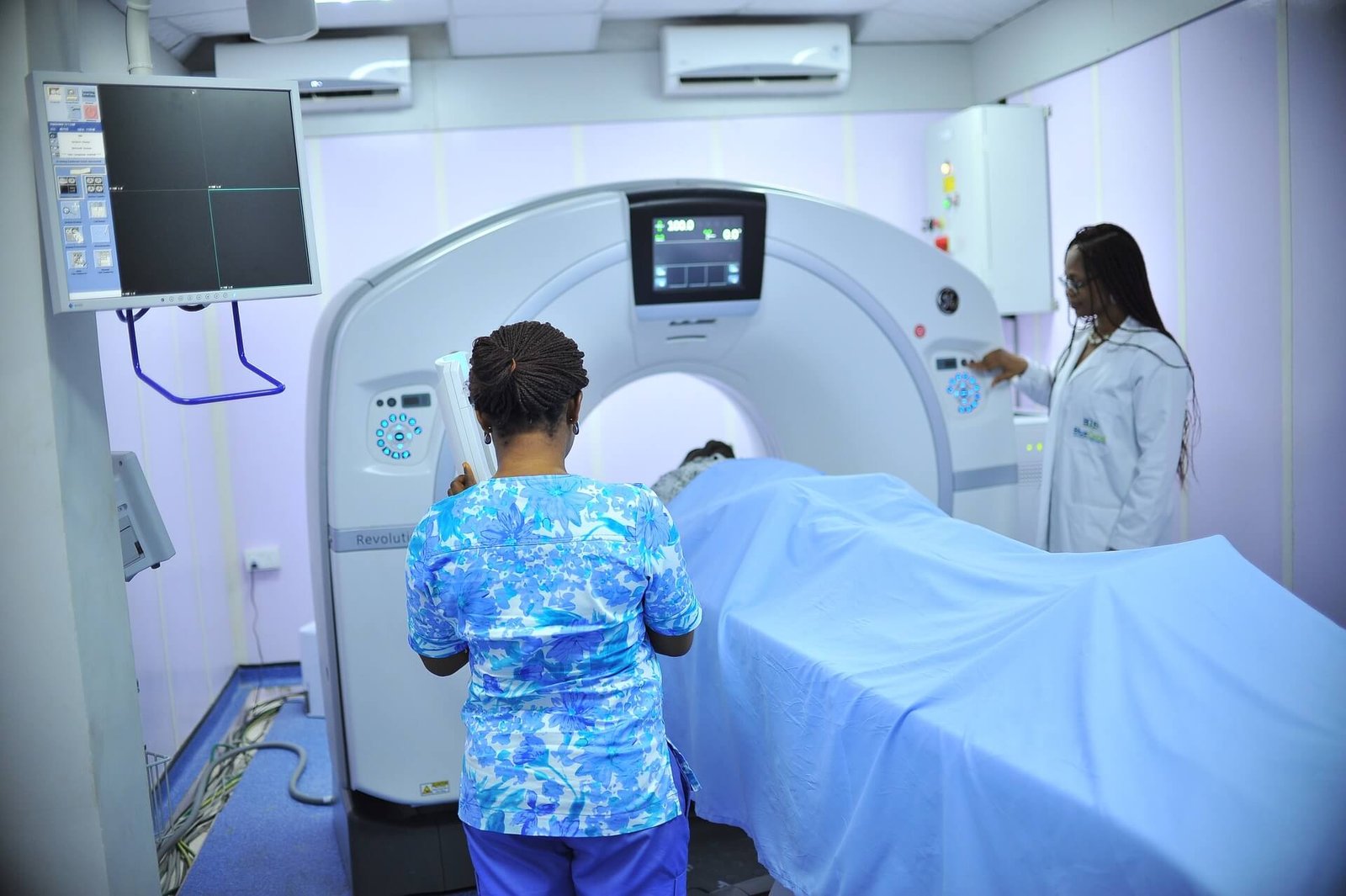
Tech Startups Are Transforming Healthcare Today
Introduction: The Digital Revolution in Healthcare
In today’s fast-paced world, healthcare is undergoing a significant transformation, largely driven by tech startups. These young, agile companies are creating cutting-edge innovations that make healthcare more affordable, accessible, and personalized than ever before. From AI-powered diagnostics to wearable health devices and telemedicine services, tech startups are stepping in where traditional systems have struggled. The result? A healthcare system that is improving lives and changing the way we think about health.
Tech Startups: The Engine Behind Healthcare Innovation
When we think of healthcare, we often think of hospitals, doctors, and traditional medical institutions. However, it’s tech startups that are pushing the boundaries of what’s possible, often overcoming limitations that larger institutions face. They offer fresh, innovative solutions and are not bogged down by bureaucratic red tape.
1. Telemedicine: Making Healthcare Accessible
Telemedicine is one of the most prominent innovations in healthcare. Startups have created platforms where people can consult with doctors and specialists from the comfort of their homes. The COVID-19 pandemic accelerated this shift, but even now, patients are benefiting from remote consultations, reducing the need to travel, wait in long lines, and sometimes miss work. Tech startups have made it possible for even rural or underserved populations to access quality care, leveling the playing field.
Emotional Impact: For people in remote areas, telemedicine has been life-changing. Imagine a mother in a rural town who needs to consult a specialist in a city far away. With telemedicine, this is no longer a dream, but a reality.
2. AI Diagnostics: Speed and Precision
AI-powered tools are revolutionizing medical diagnostics. Startups are developing systems that can analyze medical images, identify patterns, and detect conditions like cancer, heart disease, and neurological disorders with accuracy that rivals seasoned doctors. These AI tools are not designed to replace doctors but to assist them, enabling faster, more precise diagnoses.
Emotional Impact: For patients, AI can mean faster treatment and better outcomes. Early detection of conditions like cancer can significantly improve survival rates, and this technology can save lives.
3. Wearables: Empowering Individuals
Wearable devices, such as fitness trackers, smartwatches, and health monitors, are becoming commonplace. Startups have turned these devices into powerful tools for managing personal health. These wearables track everything from heart rate and sleep patterns to glucose levels, allowing patients to monitor their health in real time and alerting them to potential issues before they become serious.
Emotional Impact: Think about the comfort and control that comes with having your health at your fingertips. For someone with diabetes, a wearable that tracks blood sugar levels means they can prevent a medical crisis before it happens.
4. Blockchain for Secure Health Data
The rise of digital health solutions brings with it concerns about data security. Blockchain technology, often associated with cryptocurrency, is being used by tech startups to create secure, decentralized platforms for storing and sharing health data. This ensures that patient information is protected from hacks and breaches, and gives individuals control over their own data.
Emotional Impact: For patients, knowing that their personal health information is secure provides peace of mind. It builds trust between patients and healthcare providers, making people more willing to share essential health data.
The Emotional Impact: Transforming Lives
While the technology is impressive, it’s the emotional impact that truly resonates with people. Healthcare is deeply personal, and tech startups are addressing real pain points for patients, caregivers, and healthcare professionals alike.
1. Bridging the Gap for Underserved Communities
Many people, especially in rural or low-income areas, have limited access to healthcare. Tech startups are working to bridge this gap by offering remote consultations, mobile health clinics, and even telemedicine apps that can connect people with specialists. These innovations are bringing healthcare directly to underserved communities, where hospitals and clinics may be far and few between.
Emotional Impact: Imagine a person who has spent years waiting for a specialist, unable to afford the travel and time away from work. With telemedicine, they can consult an expert from home, feeling valued and cared for.
2. Affordable Solutions for All
The high cost of healthcare is a burden for many, but tech startups are helping to make healthcare more affordable. Startups are offering low-cost alternatives to traditional healthcare services, such as online therapy platforms, affordable telehealth consultations, and even low-cost health monitoring devices.
Emotional Impact: For families struggling to afford basic healthcare, these cost-effective solutions offer hope. A mother who can’t afford an in-person appointment with a therapist might find solace in an affordable, digital counseling service.
3. Breaking the Stigma Around Mental Health
Startups in the mental health space are helping to break down the stigma surrounding mental health care. With apps that provide therapy and emotional support, individuals no longer have to face the shame of visiting a therapist in person. These apps allow people to seek help in private, often from the comfort of their homes.
Emotional Impact: Mental health is an area that affects millions but is often ignored. These digital solutions make it easier for people to seek the support they need without fear of judgment.
Challenges Faced by Tech Startups in Healthcare
Despite the remarkable potential, tech startups in healthcare face significant challenges. Regulatory hurdles, data privacy concerns, and the need for widespread adoption can slow down progress. For instance, healthcare is one of the most highly regulated industries, and startups often have to navigate complex laws and policies that vary by region.
However, many startups are collaborating with healthcare providers, regulators, and investors to overcome these obstacles. It’s a process, but progress is being made.
How You Can Get Involved: The Future of Healthcare Is in Our Hands

As consumers, we hold the power to shape the future of healthcare. By embracing health technology and supporting startups, we can drive innovation forward. Here’s how you can get involved:
- Adopt New Health Tech: Whether it’s through using wearable devices or telehealth services, embracing these innovations can improve your health and support the growth of health tech startups.
- Advocate for Digital Health: Share your positive experiences with digital health solutions, advocate for their use, and encourage others to give them a try.
- Support Health Startups: If you’re passionate about innovation, consider supporting health tech startups, whether by using their products, investing in their companies, or simply spreading the word.
Conclusion: A New Era of Healthcare

We are living in a time of unprecedented change, where technology is not just enhancing the way we live but revolutionizing the way we experience healthcare. From the comfort of our homes to our fingertips, tech startups are breaking barriers that once seemed insurmountable—offering better access, greater affordability, and more personalized care than ever before.
Imagine a future where you can consult with your doctor from anywhere in the world, where AI helps detect life-saving conditions early, and where your health data is securely stored and under your control. That future is here today, and it’s being shaped by innovative startups that care about one thing above all: improving lives.
For patients, this means faster diagnoses, easier access to specialists, and a sense of security that their health is being managed with precision and care. For families, it means affordable solutions that fit into their busy lives. And for communities, it means healthcare that reaches beyond city limits and into the places where it’s needed most.
This is just the beginning. We can all play a part in this transformation, whether by embracing these innovations in our own lives or supporting the startups that are changing the game. Together, we can build a future where healthcare is not a privilege, but a universal right.
Summary: Tech Startups Redefining Healthcare
Healthcare is undergoing a radical transformation, driven by the incredible innovations of tech startups. These companies are breaking traditional barriers, providing solutions that make healthcare more accessible, affordable, and personalized. Through telemedicine, AI-powered diagnostics, wearable health devices, and secure data storage with blockchain, tech startups are changing the way we approach our health.
For underserved communities, these startups are bringing healthcare to remote areas, while offering affordable solutions that don’t compromise on quality. They’re also addressing the emotional aspect of healthcare—helping to break down the stigma around mental health and empowering individuals to take control of their own well-being.
While challenges remain—such as regulatory hurdles and widespread adoption—tech startups are determined to continue pushing forward, with the potential to revolutionize healthcare for everyone. Now is the time to embrace these innovations and be part of a future where healthcare is better, faster, and more equitable for all.
Frequently Asked Questions (FAQs)
1. How are tech startups changing healthcare?
Tech startups are transforming healthcare by introducing innovative solutions like telemedicine, AI diagnostics, wearable devices, and secure health data platforms. These technologies make healthcare more accessible, affordable, and personalized. They allow people to consult doctors remotely, track their health in real time, and ensure their data is protected—all from the comfort of their homes.
Emotional Impact: Think about how empowering it is to have your health in your own hands, without the fear of high costs or long wait times!
2. What is telemedicine, and how does it improve access to healthcare?
Telemedicine allows patients to consult with doctors and specialists remotely, using video calls, apps, and other digital platforms. It’s especially valuable for those in rural or underserved areas, where traditional healthcare might be hard to access. With telemedicine, you no longer have to travel long distances to see a specialist—you can get expert advice right at home.
Emotional Impact: Imagine not having to take time off work or travel for hours just to get a consultation. That’s the freedom telemedicine offers!
3. How does AI help in diagnosing diseases?
AI-powered systems can analyze medical images, patient data, and other information to detect conditions like cancer, heart disease, and neurological disorders more accurately and quickly than traditional methods. These tools help doctors make faster, more precise diagnoses, saving time and, often, lives.
Emotional Impact: Early detection can mean the difference between life and death. AI makes that possible in ways we never thought possible before!
4. Can wearable devices really help improve my health?
Yes! Wearables like fitness trackers and smartwatches monitor your heart rate, sleep patterns, and even glucose levels, giving you real-time insights into your health. These devices can alert you to potential health issues before they become serious, allowing you to take proactive steps toward better health.
Emotional Impact: Knowing that you’re in control of your health, watching your progress, and getting real-time feedback—how empowering is that?
5. How secure is my personal health data with tech startups?
Tech startups are using blockchain technology to secure personal health data. This decentralized system protects your information from hacks and breaches, ensuring that you’re the only one who controls your health data. This is a huge leap forward in building trust between patients and healthcare providers.
Emotional Impact: The peace of mind knowing that your sensitive health data is safe is priceless. It’s your health, your data—protected like never before.
6. Are tech startups making healthcare more affordable?
Absolutely! Many startups offer affordable alternatives to traditional healthcare services. From low-cost telehealth consultations to affordable wearables and online therapy, these startups are finding ways to reduce costs without compromising on quality. They’re making healthcare accessible for families, individuals, and communities that were previously priced out.
Emotional Impact: For many families, this is life-changing. Affordable healthcare means less stress, more peace of mind, and the ability to focus on what truly matters—your health.
7. How can I get involved in the healthcare revolution led by tech startups?
You can get involved by embracing new health technologies in your own life. Try using telemedicine for consultations, track your health with wearables, or support startups that are creating solutions you believe in. Share your positive experiences to help spread the word and encourage others to join the movement toward better healthcare.
Emotional Impact: By embracing and supporting these innovations, you’re not just improving your own health—you’re helping to create a future where healthcare is better for everyone.
8. What are some challenges tech startups face in healthcare?
Tech startups face challenges like navigating complex healthcare regulations, securing funding, and ensuring widespread adoption of their innovations. However, many startups are partnering with healthcare providers, regulators, and investors to overcome these obstacles and continue to push for progress.
Emotional Impact: It’s inspiring to see these companies persevere, driven by their mission to make healthcare better for all. They’re not just facing challenges—they’re paving the way for a brighter, healthier future.
9. Can tech startups replace traditional healthcare?
While tech startups are making incredible advancements, they aren’t aiming to replace traditional healthcare. Instead, they work alongside doctors, nurses, and healthcare institutions to enhance and improve the system. Technology helps provide faster diagnoses, remote consultations, and personalized care, but human touch and expertise will always be at the heart of healthcare.
Emotional Impact: The future of healthcare isn’t about replacing humans—it’s about empowering them to deliver better, more efficient, and compassionate care.
10. How does the use of AI in healthcare improve patient outcomes?
AI in healthcare helps doctors make more accurate decisions by analyzing vast amounts of data quickly. AI tools can predict patient risks, suggest personalized treatment plans, and even spot subtle patterns in medical images that human eyes might miss. This leads to earlier detection of diseases, more tailored treatments, and ultimately better outcomes for patients.
Emotional Impact: With AI, you have a healthcare partner that never misses a detail—giving you the best chance to fight back against illness and live a healthier life.
11. Are mental health tech solutions helping people with emotional challenges?
Yes, mental health tech startups are doing incredible things by providing affordable and accessible therapy options through apps, virtual counseling, and online support groups. They break the stigma surrounding mental health, making it easier for people to seek help from the comfort and privacy of their homes.
12. What are “digital health platforms,” and how can they help me manage my health?
Digital health platforms are integrated systems that combine telemedicine, health monitoring, and personalized care management in one place. Through these platforms, you can schedule doctor visits, track your medications, and manage chronic conditions—all from your phone or computer.
13. How can wearable devices help prevent chronic diseases?
Wearables like smartwatches and fitness trackers track your activity levels, heart rate, sleep patterns, and even stress levels. By monitoring these factors, wearables can alert you to early signs of chronic conditions like heart disease, diabetes, or sleep apnea, allowing you to take preventative action before problems become serious.
14. What role does blockchain play in healthcare innovation?
Blockchain technology is revolutionizing healthcare by providing a secure, transparent way to store and share patient data. With blockchain, patients can access their own medical records securely, while healthcare providers can ensure that information is accurate, up-to-date, and protected from hacks or fraud.
15. Can tech startups improve healthcare in underserved communities?
Yes! Many tech startups are specifically focused on reaching underserved populations by providing affordable telemedicine, mobile health apps, and access to virtual consultations. These innovations are especially vital for people who have limited access to traditional healthcare due to geographic, financial, or social barriers.
Emotional Impact: For communities that have long been left behind, tech startups bring a new wave of hope and opportunity, ensuring that no one is left out of the healthcare conversation.
16. What does the future of healthcare look like with these technologies?
The future of healthcare is bright, with technologies like AI, telemedicine, wearables, and blockchain coming together to create a system that’s more efficient, accessible, and patient-centered. We can expect faster diagnoses, more personalized treatments, and greater transparency in healthcare systems, making healthcare a more seamless experience for everyone.
17. How can I find trustworthy health tech startups?
When looking for reliable health tech startups, it’s important to check reviews, ask for recommendations, and look for companies with transparent practices. You can also check if the startup has partnerships with established healthcare providers, as this can indicate trustworthiness and credibility.
18. Can tech startups make healthcare more patient-centered?
Yes! Many tech startups focus on making healthcare more personalized and patient-centered. Whether it’s through offering tailored treatment plans, providing access to virtual support groups, or giving patients more control over their health data, these startups are placing the patient at the heart of the care experience.
19. Are there any downsides to the growing role of tech in healthcare?
While the benefits are undeniable, there are challenges to consider, such as data privacy concerns, the digital divide, and the potential for technology to replace human touch in healthcare. It’s crucial for startups and healthcare systems to strike a balance, ensuring that technology enhances rather than replaces the human element of care.
20. How can tech startups improve healthcare for people with disabilities?
Tech startups are developing solutions specifically for people with disabilities, such as accessible health apps, wearable devices for monitoring physical conditions, and telemedicine platforms that allow easier communication with healthcare professionals. These innovations make healthcare more inclusive, ensuring that everyone can access the care they need.




